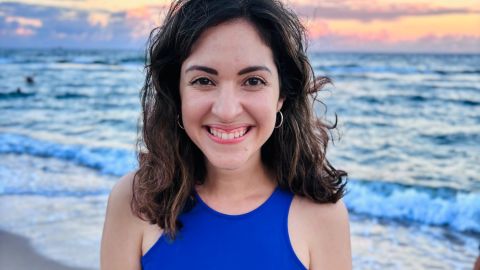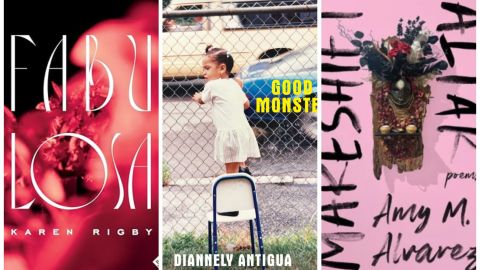My Broken Spanish Reminds Me Of Our Sacrifices
My first word was “APRA

Photo: Unsplash
My first word was “APRA.” Although, it’s not technically a word. APRA is an acronym for the American Popular Revolutionary Alliance of Peru. It’s a center-left political party that my father supported. So, consequently, I learned the chant “Apra! Apra!” But besides that, I don’t know my actual first word. No one does.
Before turning one, I came to the United States with my grandmother and while she and my tio and tia (who lived here) spoke Spanish, they were also trying to get me to adapt to the American culture. Besides my grandmother, everyone around me began to speak English. My household was an ever-flowing space of both English and Spanish and while this could’ve been efficient at a young age, it made it difficult for me to understand what my language was. I just threw words out there in English and Spanish—not knowing which language belonged to which countries. I was under the impression that wherever I went, everyone spoke both.
When I was three years old, I went back to Peru. To my frustration, I had to adapt to Spanish again and for four years I let go of my English. I began to get extremely comfortable with Spanish. You know; that fast-paced non-stop, pile-up the words yet it all makes sense type of Spanish. I felt comfortable calling this language my native tongue.
Three years later, we moved again and this time permanently to the United States. When my mother tried to enroll me into second grade, there was a good chance I would not be accepted because I was having problems with my reading and writing. To avoid this, my family drilled English into me. Every day I would study literature, spellings, writing, and composition. Eventually, I dominated the language, got accepted into 2nd grade and grew up with English as my primary language. But while I was growing up in an environment that embraced and encouraged English, my mother was struggling with this new language being forced on her. She began to constantly feel defeated at the complex and often blurry rules of English grammar: I before e, possessive plurals, to, too, two their, there, they’re.
Every night, my mother would come home from night school, sit at the dining room table, open up her workbook and begin her pronunciations:
“Werl? Wor? Worl….D. World.”
Whenever she would close up the word “world” with a clear pronunciation of all the letters, my two brothers and I would celebrate. It was such a triumph to see her have full control of her tongue in a foreign land. We were so proud. To my mother, though, every celebration was bittersweet because forcing her tongue to move in ways she was not used to was not only a terrifying challenge, but it was also a reminder that she sacrificed so much. She felt she was betraying her poetic, passion-filled, persuasive Spanish, for a language she considered tricky, sneaky, manipulative and with no sense or logic behind its rules.
“En el Espanol, como se escribe es como se pronuncia” she would say.
She hated that in order to speak more English, she needed to speak less Spanish. She hated that she felt that she needed to assimilate, she needed to blend in, she needed to cover her roots with the traditions and customs of the Americanized public she was now mingling with. And she hated that this new place she tried so hard to make her home, kept reminding her she was still just a guest.
One day, my mother who was a doctor in Peru, came home from her day shift as a busser at Fresh Choice and began to cry about how the customers were very rude to her. She said they aggressively told her to “speak English” and told her “I don’t understand your thick accent.” They made the hard work she was putting into trying to thrive in this country, meaningless. Since then, my brothers and I made it our mission to make sure she was comfortable with English so all we spoke for years was English. In that time my mother learned her English, went to school, and became a nurse, I began to forget my Spanish. My brothers managed to keep their Spanish intact and learn English and I dominated the English language but completely lost my Spanish.
Speaking the language of the people that didn’t look like me, troubled me. I belonged nowhere. And for a long time, I resented my mother for not giving me the opportunity to speak Spanish. When I found myself around family, Latinos, or Spanish-speaking professionals, I felt uncomfortable, incompetent, judged, and out of place. It took years for me to understand that my broken Spanish, my thick accent, my pronunciations were all a representation of something my mother taught me firsthand: sacrifice. I am not less Latina because I represent two cultures, two languages, two societies. In fact, I am more Latina because of it.
I am not nowhere. I am in both. I am both. I am in the middle, comfortable with my accents not because it shows I don’t belong, but because it shows I belong in more places than one. I am multicultural, bilingual, and every mispronunciation, every word that gets stuck between my mind and my tongue, every sentence I don’t understand, or every word I’ve never heard before is a symbol that, like my mother, I’ve had to adapt and in doing so, I’ve succeeded.

















